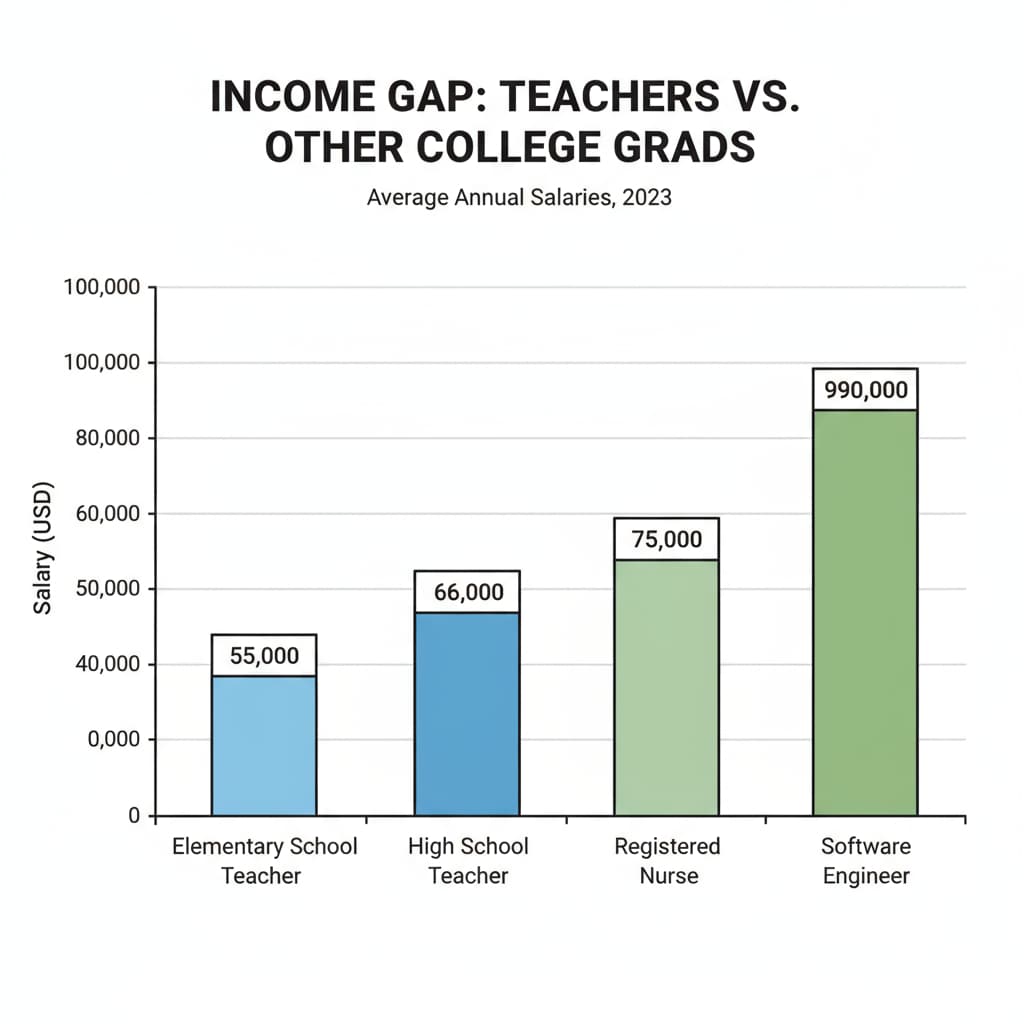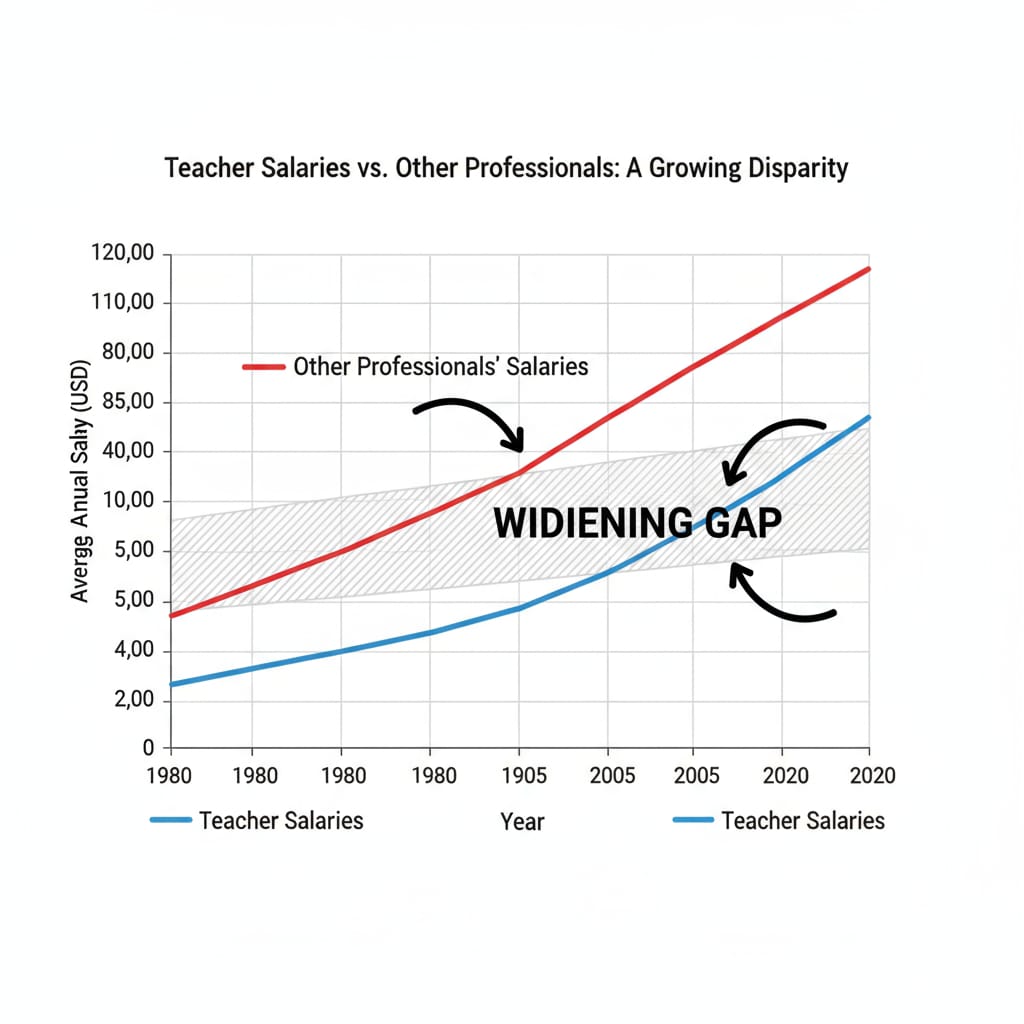The issue of teacher salaries, income gap, and teacher shortage in the United States has reached a critical juncture. The income disparity between teachers and other college-educated professionals has now hit a record high. For every dollar a teacher earns, other professionals with a college degree make $1.73. This significant gap is not only unfair but also has far-reaching implications for the education system.

The Widening Income Gap
The growing income gap between teachers and their counterparts in other fields is a disturbing trend. Over the years, while salaries in many professions have seen substantial increases, teacher pay has stagnated. This has made teaching less attractive as a career option. For example, in technology and finance, college graduates can expect high starting salaries and significant annual raises. In contrast, teachers often struggle to make ends meet. According to National Center for Education Statistics, this gap has been steadily widening, putting teachers at a financial disadvantage.

The Impact on Teacher Shortage
This income inequality is directly contributing to the teacher shortage crisis. Many talented individuals who might have considered teaching as a career are deterred by the low pay. As a result, schools across the country are facing difficulties in hiring and retaining qualified teachers. Rural and low-income areas are hit particularly hard. Without enough dedicated teachers, the quality of education in these areas is at risk. National Education Association has long advocated for better pay to address this shortage.
The situation is dire, and urgent action is needed to reverse this trend. Raising teacher salaries is not just about fairness; it’s about ensuring the future of education in the United States. By closing the income gap, we can attract and retain the best educators, ultimately benefiting students and society as a whole. Readability guidance: The paragraphs are short to convey key points clearly. We’ve used simple language and provided examples for better understanding. Transition words like ‘for example’ and ‘in contrast’ help connect ideas smoothly.


